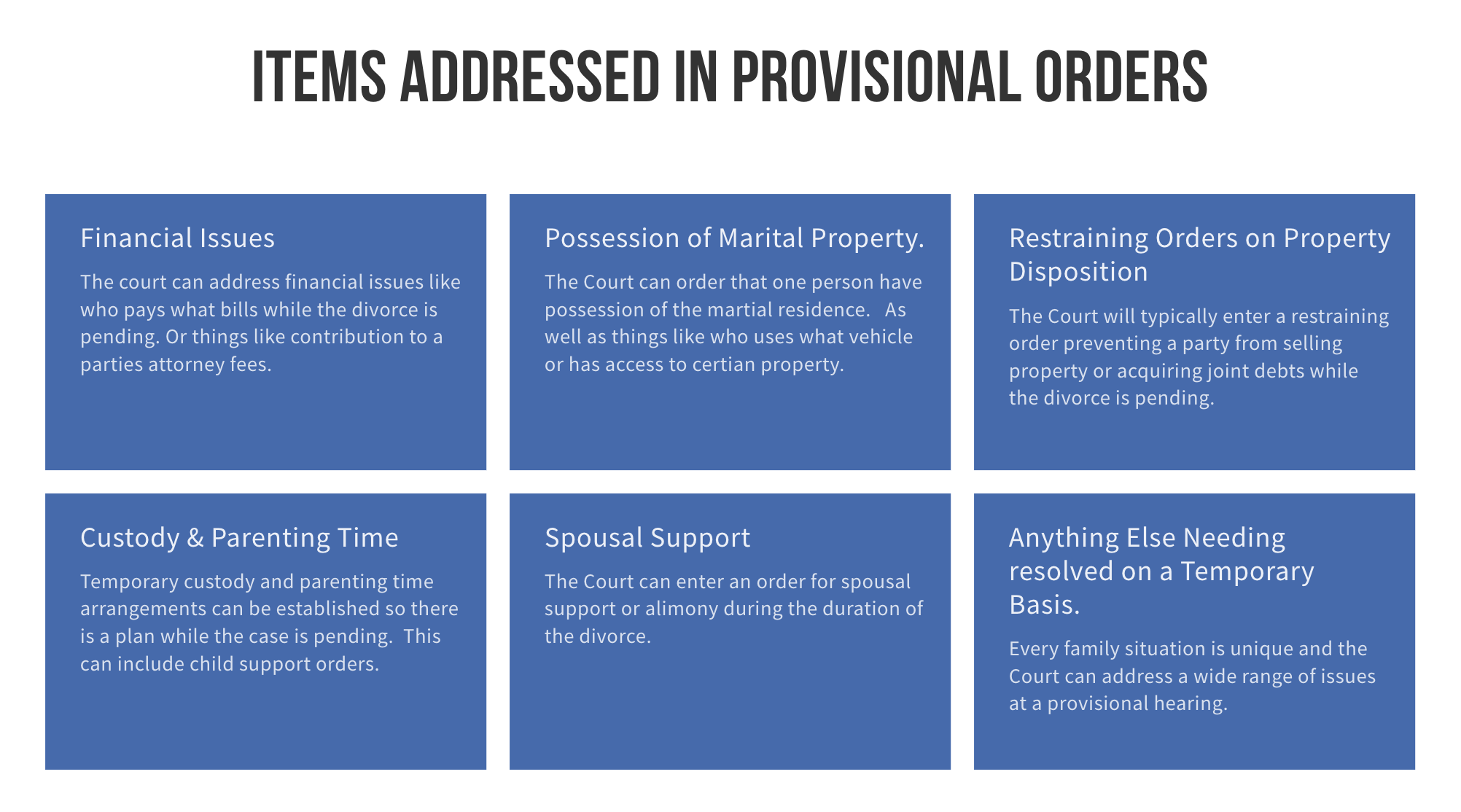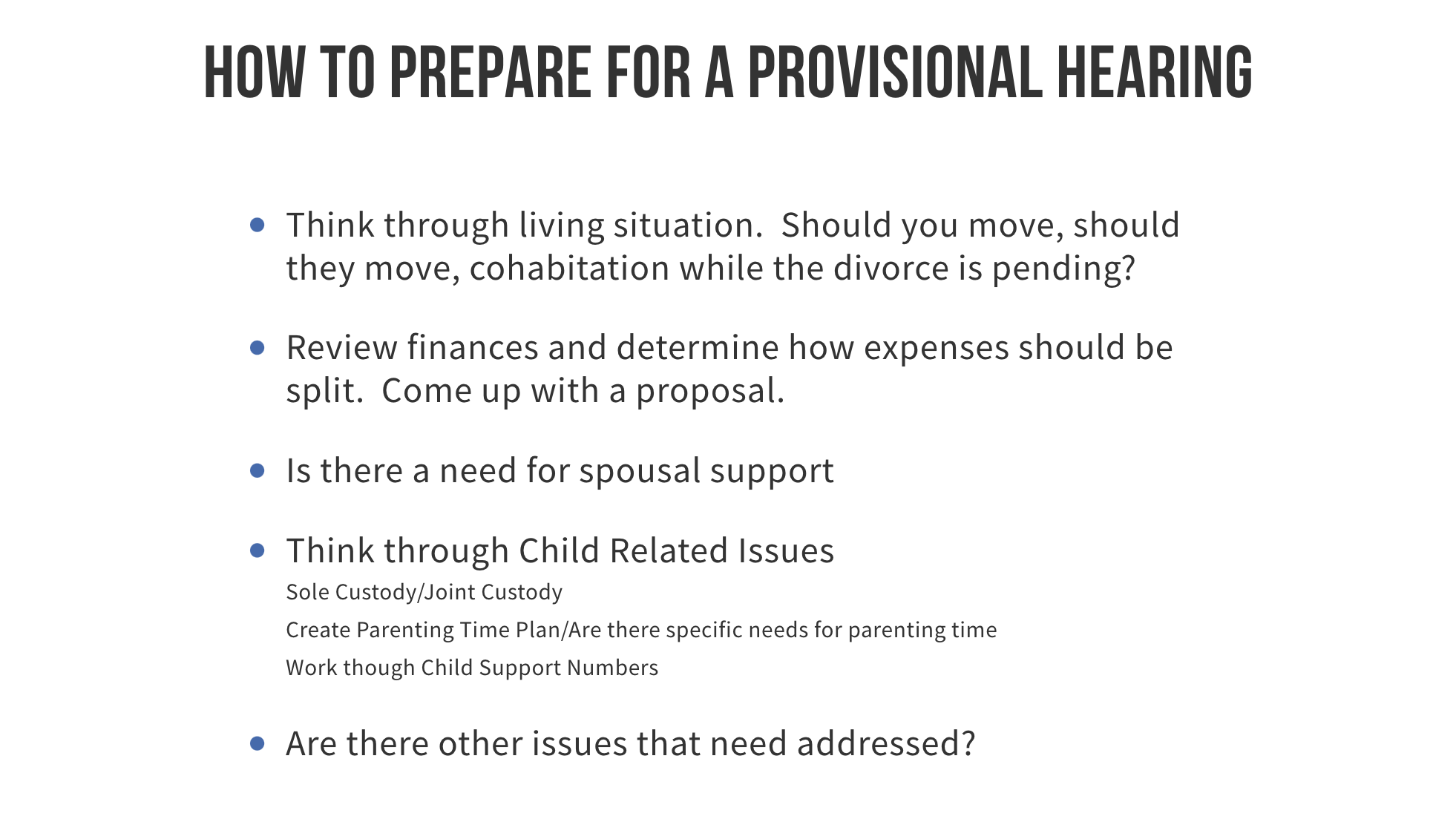Understanding Indiana Divorce: Provisional Orders Explained
The Role of Provisional Hearings in Divorce
Divorce can be a complex and emotionally charged process, but provisional hearings play a crucial role in establishing stability during this transitional period. These hearings allow the court to issue temporary orders that address urgent matters—such as child custody, financial support, and property possession—before the final divorce decree is issued.
What Issues Are Addressed in a Provisional Hearing?
Provisional hearings provide a structured forum for resolving pressing concerns that cannot wait until the divorce is finalized. These temporary orders cover:
Spousal Maintenance – One spouse may be required to provide financial support to the other while the divorce is pending.
Child Custody & Parenting Time – Courts establish a temporary custody arrangement to provide stability for children during the divorce process.
Property Possession – Determining which spouse has temporary use of the marital home, vehicles, or other assets.
Bill Payments & Debt Responsibility – Assigning financial obligations to prevent defaults or disruptions in essential services.
These orders remain in effect until the court modifies them or the divorce is finalized.
What Happens During a Provisional Hearing?
A provisional hearing follows a structured legal process, allowing both spouses to present their positions on key issues. Typically, this involves:
Presenting Arguments & Evidence – Each party submits testimony, financial records, and supporting documents.
Witness Testimony – If necessary, witnesses (such as financial experts or child welfare professionals) may provide statements.
Judicial Decision – At the conclusion of the hearing, the judge issues temporary orders that govern the divorce process until a final resolution is reached.
While court-issued orders provide structure, there is also an alternative: negotiated agreements.
Negotiating Temporary Agreements
Rather than relying solely on the court’s decision, spouses can work together—often with their attorneys—to negotiate provisional agreements. When these agreements are mutually reached and approved by the court, they offer greater flexibility and control over the divorce process. Negotiated agreements can help minimize conflict, reduce legal expenses, and provide a more customized solution to temporary concerns.
The Importance of Provisional Orders
Regardless of how they are established—through a hearing or mutual negotiation—provisional orders bring structure, clarity, and predictability to the divorce process. They help ensure financial obligations are met, children’s needs are prioritized, and disputes are managed fairly while awaiting a final divorce decree.
By understanding how provisional hearings work and what they address, divorcing spouses can make informed decisions that protect their rights and interests during this challenging time.
📞 Call or Text: (317) 759-3225
📩 Contact Us: Indiana Lawyer Contact Page



